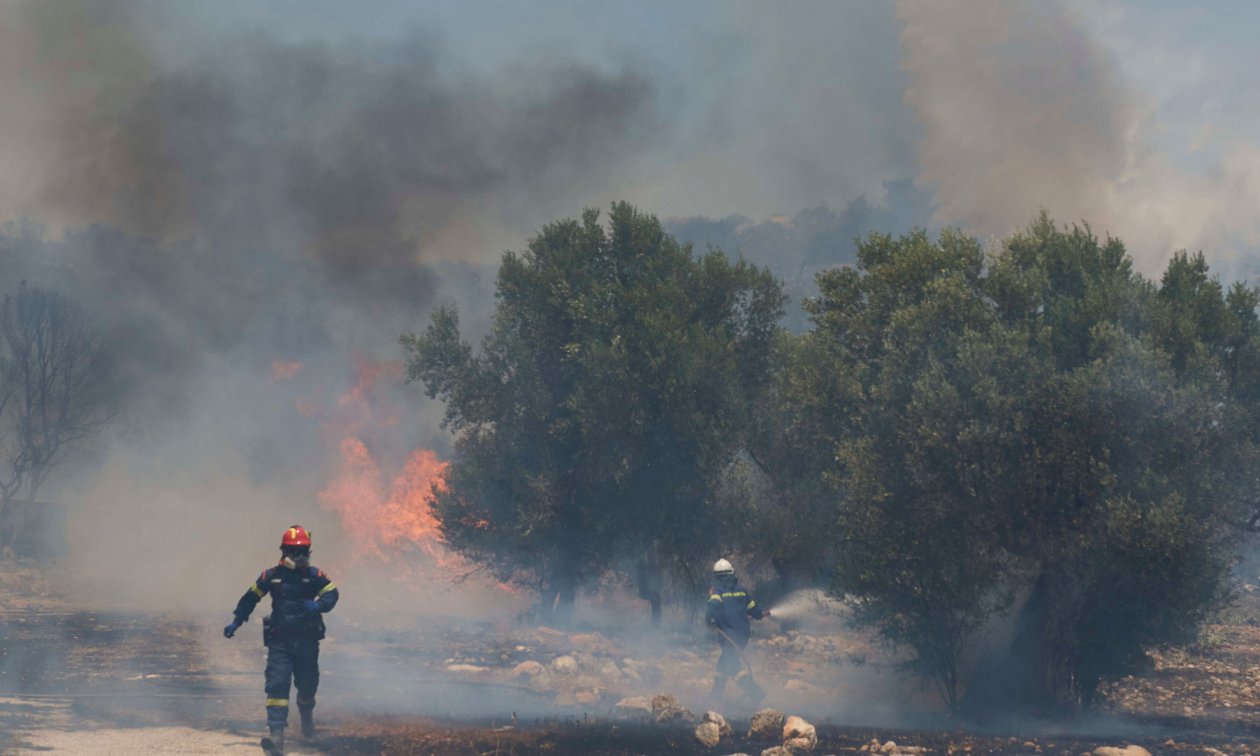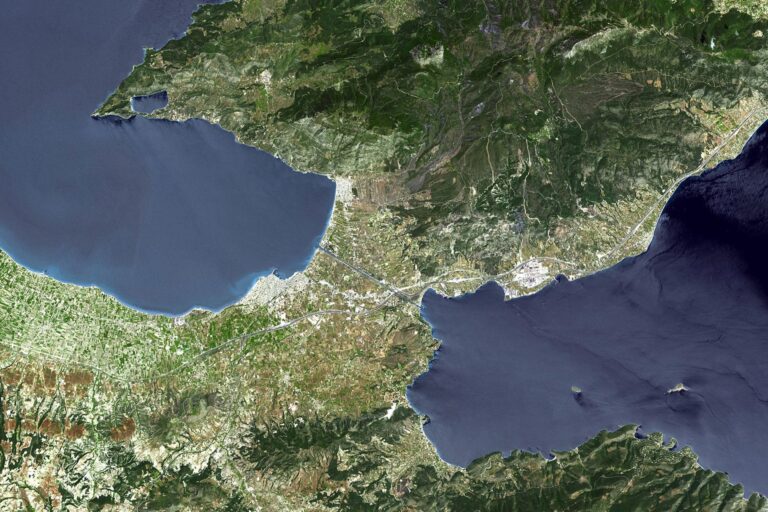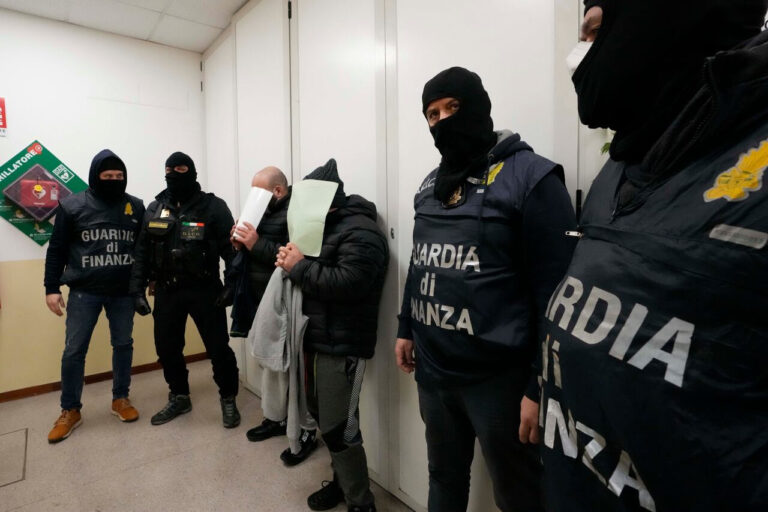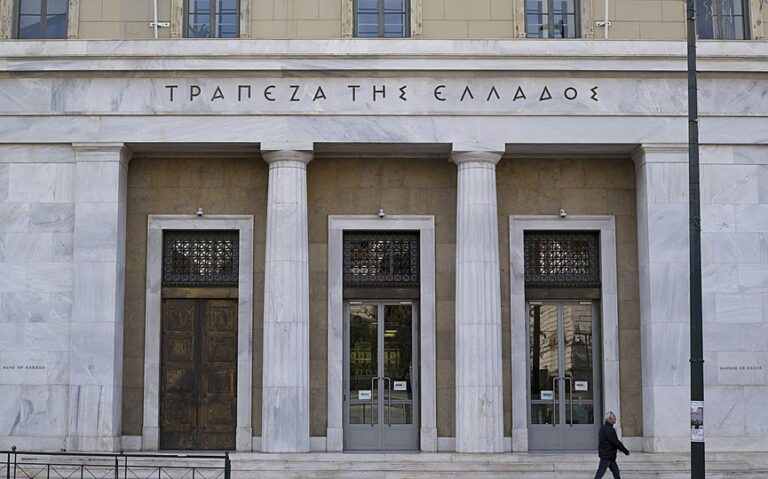Twenty-eight people dead, thousands of animals burned, properties and businesses destroyed, and 93,880 hectares of land incinerated – this is the provisional toll of the unprecedented wildfires that have ravaged Greece in recent weeks. But it didn’t have to be this way.
The fire at Evros, in the northeast of the country, has been burning for two weeks, making it the largest ever recorded in the European Union.
Exacerbated by the climate crisis, the fires progressed amid one of the hottest and driest summers this year, with heatwaves raising the risk level to the highest level in years.
Earlier this summer, Rhodes island, Evia island, and the Thessaly region were also gravely affected, while the Attica region battled its own blazes when fires passed through villages in the Parnitha mountains.
Greece activated the EU’s Civil Protection Mechanism twice during the summer because of the severity of the fires, receiving immediate air and ground support from numerous European countries.
Poor prevention
But while the impact of climate change cannot be ignored, it was not the only factor at play.
When the ruling conservative New Democracy party came to power in 2019, the government announced new fire prevention and protection measures following several devastating blazes in the previous years.
The measures, ranging from upgrades in the firefighting forces to a national warning system and forest clean-ups before the summer, were meant to prevent wildfires from spreading unhindered during the dry season.
But as this year’s events demonstrated, they were not enough.
Vasilis Kikilias, Greece’s climate crisis and civil protection minister, admitted that the measures did not yield the desired results, as fires appeared and spread rapidly across the country.
Despite an increase in active personnel and firefighting vehicles, authorities proved unable to contain the blazes that raged on for days.
However, the scale of destruction could have been avoided had more attention been paid to prevention and preparation before the start of the fire season, Greek environment experts maintain.
Members of the opposition were quick to point out the lack of preparedness and the insufficient progress made in the implementation of the government’s measures since they were introduced.
The government was also criticised for failing to take into account the recommendations put forward by the opposition to adapt Greece’s civil protection mechanism and forest management system.
Rising from the ashes
While authorities are still assessing the full extent of the damage caused by the fires, the government has already set out plans for the recovery of the affected areas and compensation for people whose livelihoods have been affected.
Prime Minister Kyriakos Mitsotakis announced on Thursday (31 August) ten new measures for the prevention and containment of wildfires, with increased responsibilities for municipalities to prepare ahead of the summer season.
The reforestation of 66,000 hectares of land, with priority given to Evros and Parnitha, is scheduled to take place over the next two years. Special attention will be paid to forested areas near protected archaeological sites, which will be equipped with cameras.
The civil protection mechanism is also set to receive a significant upgrade through a program named “Aigis”, meant to improve the infrastructure, equipment, coordination and communication between the firefighting forces, municipalities, and other actors involved.
In addition, the Ministry of Environment and Energy is starting urgent erosion and flood protection works to secure the damaged regions in the coming winter months.
Lastly, tougher sentences and fines will be slapped on arsonists who have been accused of fuelling the fires.
But as Greece recovers from one of its most devastating summers ever, what dominates is the feeling of an immense waste that could have been contained, if not avoided altogether.
As summer droughts and heat are set to worsen with the climate crisis, fire prevention needs to move up on Greece’s political agenda.
“Climate change is here. Big challenges are here and we need a national response plan that prioritises prevention,” said Nikos Androulakis, president of centre-left PASOK.
Source: Euractiv







